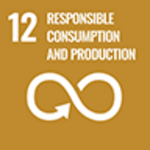
The development of new chemical reactions is intrinsically entangled with the prosperity of humanity and the preservation of the environment. The cross-coupling reaction, which was awarded the 2010 Nobel Prize in Chemistry, is a representative example of this, which has been used in the production of approximately 20% of pharmaceuticals and almost all liquid crystals and organic electroluminescent (OEL) materials, and is involved in an industry with an approximate annual worth of 60 trillion yen. As this example illustrates, the development of new chemical reactions thus significantly affects the evolution of society. The Institute for Chemical Reaction Design and Discovery (ICReDD) was established at Hokkaido University under the World Premier International Research Center Initiative (WPI) launched by the Ministry of Education, Culture, Sports, Science and Technology (MEXT). ICReDD was born out of the realization that the purposeful design of chemical reactions requires cross-sectional collaborations at every step. At ICReDD, researchers from computational science, information science, and experimental science combine their strengths for interdisciplinary research to take full control over chemical reactions.





















